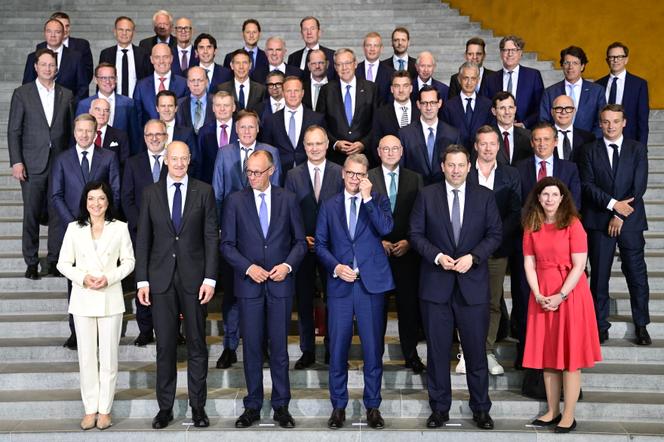


Standing on the steps of the chancellery, around 60 executives from major corporations and a handful of startups gathered around the Christian Democrat chancellor, Friedrich Merz, and Social Democrat vice chancellor, Lars Klingbeil. On July 21, they were all present: Roland Busch (Siemens), Christian Sewing (Deutsche Bank), Oliver Blume (Volkswagen and Porsche), Ola Källenius (Mercedes-Benz), and Christian Klein (SAP). The group was so overwhelmingly male that the only two women – Katherina Reiche, the economy minister, and Bettina Orlopp, CEO of Commerzbank – were placed in the front row. All came to pledge their allegiance, promising to invest €631 billion in Germany by 2028.
"We are starting a new partnership between business and politics," said Roland Busch of Siemens, one of the promoters of the "Made for Germany" initiative. These barons of German capitalism, so often criticized for focusing on their shareholders and distant markets over the Standort Deutschland – the "Germany location" – committed to making substantial investments at home. The media later revealed that much of this investment had already been planned. Still, the messaging was crucial: the aim of this unprecedented initiative was to provide visible private sector support for the Merz government, which in March had launched a landmark €500 billion debt plan for infrastructure renewal and suspended debt rules to boost defense investment. Germany's defense budget is set to triple over the next four years, reaching €152.8 billion in 2029, a move expected to revive economic growth, stagnant since 2019.
You have 77.74% of this article left to read. The rest is for subscribers only.
